Share this
Is Day 1 CPT Legal? A Comprehensive Guide
by Bole Huang on Sep 26, 2024
Is Day 1 CPT legal? This question has sparked debates and raised concerns among international students seeking work opportunities in the United States. This guide explains the legitimacy of Day 1 CPT. It also looks at how it affects students' academic and professional paths.
Table of Content

1. What is Day 1 CPT?
First, let’s understand what Curricular Practical Training (CPT) is. CPT is a type of off-campus work permission for F-1 students. It is an important part of their curriculum. According to 8 CFR § 214.2(f)(10)(i), CPT must be a key part of an established curriculum. It can include alternate work or study, internships, cooperative education, or any required internship.
Day 1 CPT is a type of Curricular Practical Training (CPT). It lets international students on F-1 visas begin working in their field of study right from the first day of their program.
Regular CPT usually requires students to complete one academic year before they can participate. In contrast, Day 1 CPT allows students to gain practical experience immediately after they enroll.
To qualify for Day 1 CPT, students must meet specific requirements from their university and the USCIS. These criteria include:
- Enrollment in a graduate-level program that requires immediate participation in practical training;
- Maintenance of full-time student status;
- Securing a job offer related to their field of study;
- Obtaining approval from the university's Designated School Official (DSO).
* Differences between Regular CPT and Day 1 CPT
2. Is Day 1 CPT Legal?
Yes, Day 1 CPT is legal under USCIS regulations.
USCIS lets each university create its own CPT policies. These policies include rules about off-campus internships for first-year students. Universities also can decide if their students can do full-time or part-time CPT.
However, students must meet specific requirements to maintain compliance and avoid potential risks:
- Students must maintain full-time F1 status and meet university attendance requirements.
- Students must ensure the internship or work directly relates to their field of study.
- Students must submit a CPT application to their university and receive approval before starting the work
3. Legal Documents Supporting Day 1 CPT
1) Official CPT Guidelines from the U.S. Immigration and Customs Enforcement (ICE) Website
- At the graduate or doctoral level, if the degree program requires the use of CPT for work internships from the first semester, students can contact the school's Designated School Officer (DSO) for authorization.
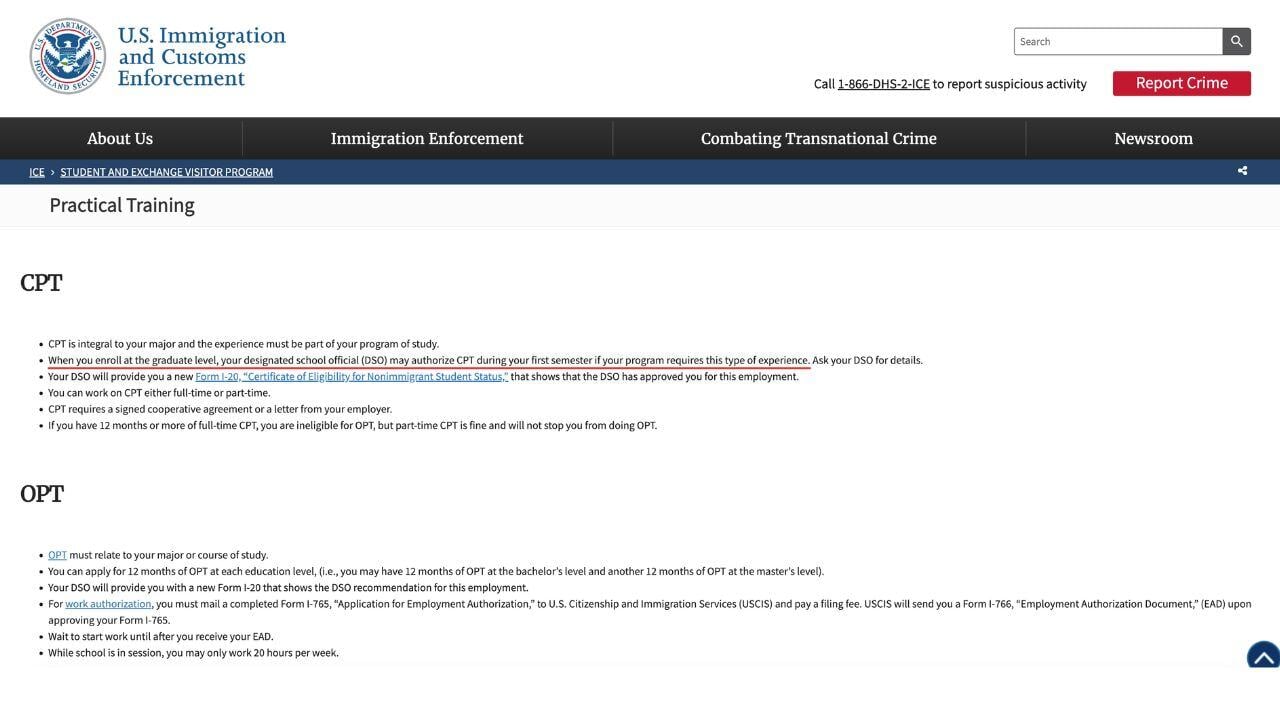
2) Explanation of CPT Legality by the U.S. Department of Homeland Security (DHS)
- CPT is only available to students who legally hold an F1 visa and must complete at least one year of full-time study at their school. However, if certain graduate programs require early relevant internships or work experience, students may be exempt from the traditional requirements.
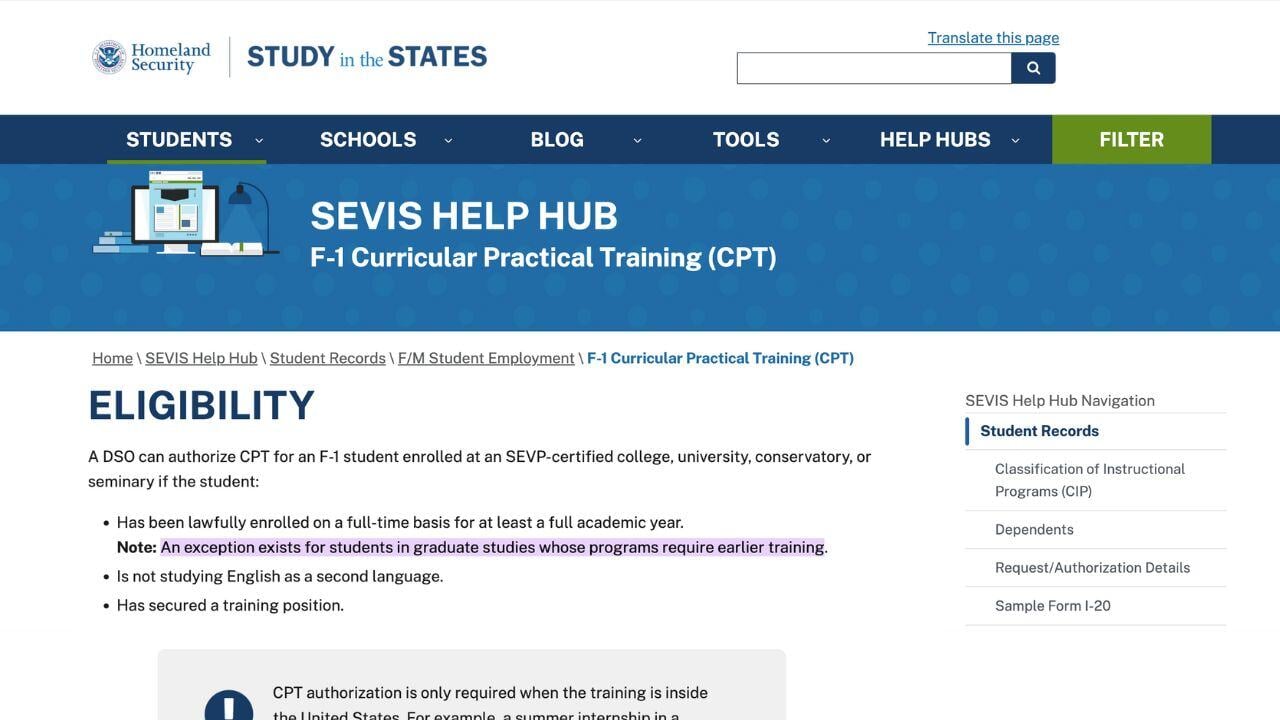
3) Explanation of CPT in the Code of Federal Regulations of the United States
- According to Title 8, Chapter I, Subchapter B, Part 214, Section 10I, for graduate and higher-level programs, students can begin internships or work from the first semester without needing to meet the first-year requirement. The policy document also states that the work must be related to their field of study.
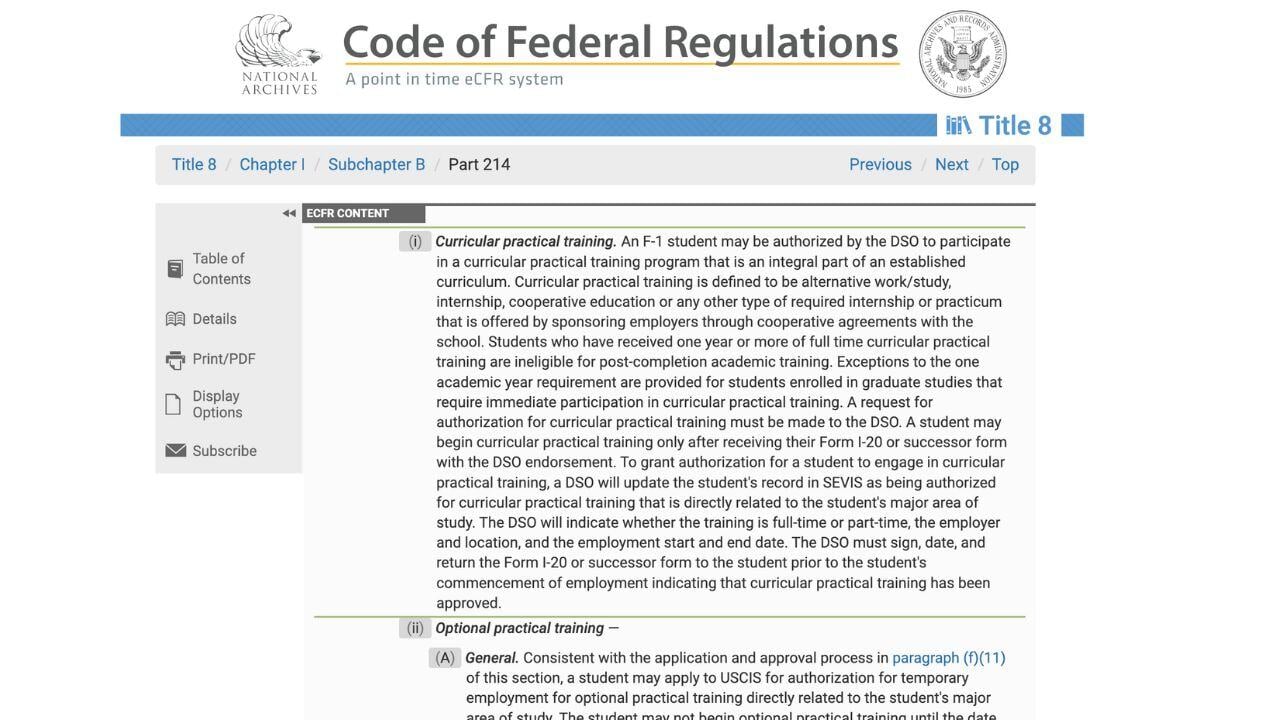
You can use Day 1 CPT, but you should choose a trustworthy and accredited university.
Enrolling in an accredited Day 1 CPT university significantly increases the chances of visa approvals and status change petitions. For instance, Westcliff University has an excellent track record. In 2021, less than 10% of students got Requests for Evidence (RFEs) when applying for an H1B visa. Of those who received RFEs, 99% passed them successfully.

Free assistance on admission to an accredited university near you
Allow you to earn work experience when studying!
In summary, Day 1 CPT complies with U.S. immigration regulations. As long as you strictly adhere to your school's compliance guidelines for Day 1 CPT, the risks associated with future status changes or visa applications are minimal.
Share this
- Day 1 CPT (32)
- H1B (24)
- Day 1 CPT Universities (18)
- H1B Lottery (11)
- CPT (6)
- Green card (5)
- University Application (4)
- F1 (3)
- F1 Status (3)
- International Students (3)
- USCIS (3)
- Westcliff University (3)
- Concordia University Texas (2)
- F1 Reinstatement (2)
- H1B Layoff (2)
- H1B Status (2)
- OPT (2)
- STEM OPT (2)
- change of status (2)
- Bay Atlantic University (1)
- Curry College (1)
- English Proficiency (1)
- Goldey-Beacom College (1)
- Green Card Application (1)
- H4 EAD (1)
- H4 Visa (1)
- Humphreys University (1)
- Immigration (1)
- International Student Travel (1)
- Jobs (1)
- L1 (1)
- Layoff (1)
- McDaniel University (1)
- O1 (1)
- Saint Peter's University (1)
- Salem University (1)
- Scholarships (1)
- Sofia University (1)
- Tax (1)
- December 2025 (1)
- November 2025 (2)
- October 2025 (1)
- September 2025 (3)
- August 2025 (2)
- June 2025 (1)
- May 2025 (2)
- March 2025 (2)
- November 2024 (2)
- October 2024 (4)
- September 2024 (3)
- August 2024 (3)
- July 2024 (2)
- June 2024 (7)
- May 2024 (3)
- April 2024 (4)
- March 2024 (3)
- February 2024 (5)
- January 2024 (1)
- October 2023 (3)
- September 2023 (6)
- August 2023 (10)
- July 2023 (3)
- June 2023 (4)
- May 2023 (1)
- April 2023 (1)
- February 2023 (1)
- November 2022 (1)
- October 2022 (3)
- September 2022 (1)
- August 2022 (1)
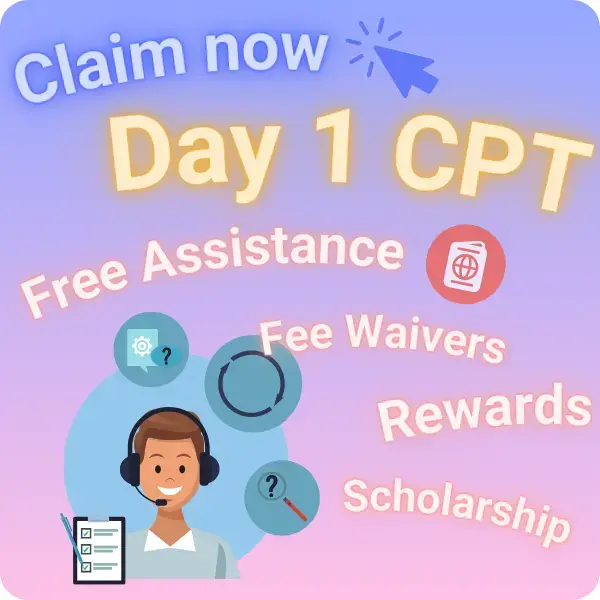
Full Day 1 CPT Universities List
Click here to view 30+ Day 1 CPT universities in different states
Scholarships & Payment Plan
Click here to explore extensive scholarships and financial aids
Get Free Assistance Now
We can help you with admission, fee waiver, and scholarships
Featured Articles
Studying and Working in the US
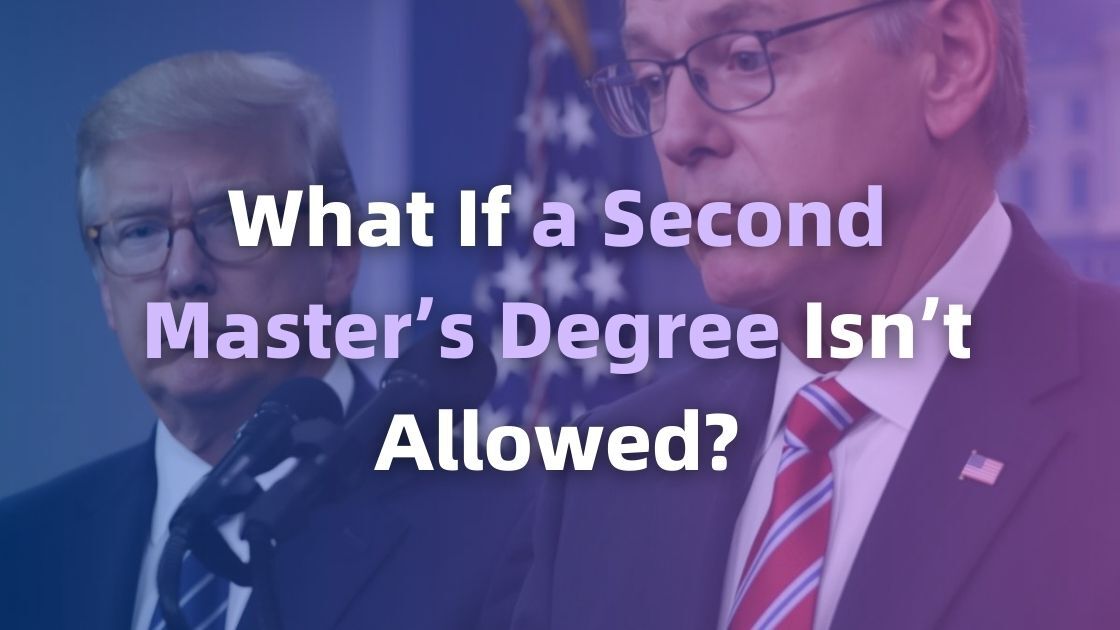
What If a Second Master’s Degree Isn’t Allowed? Why a Day 1 CPT DBA Could Be Your Best Path Forward
-Nov-22-2025-12-02-59-3078-AM.jpg)
Which Day 1 CPT Programs Offer a Fixed Summer Break? You Won’t Believe How Rare the Answer Is…
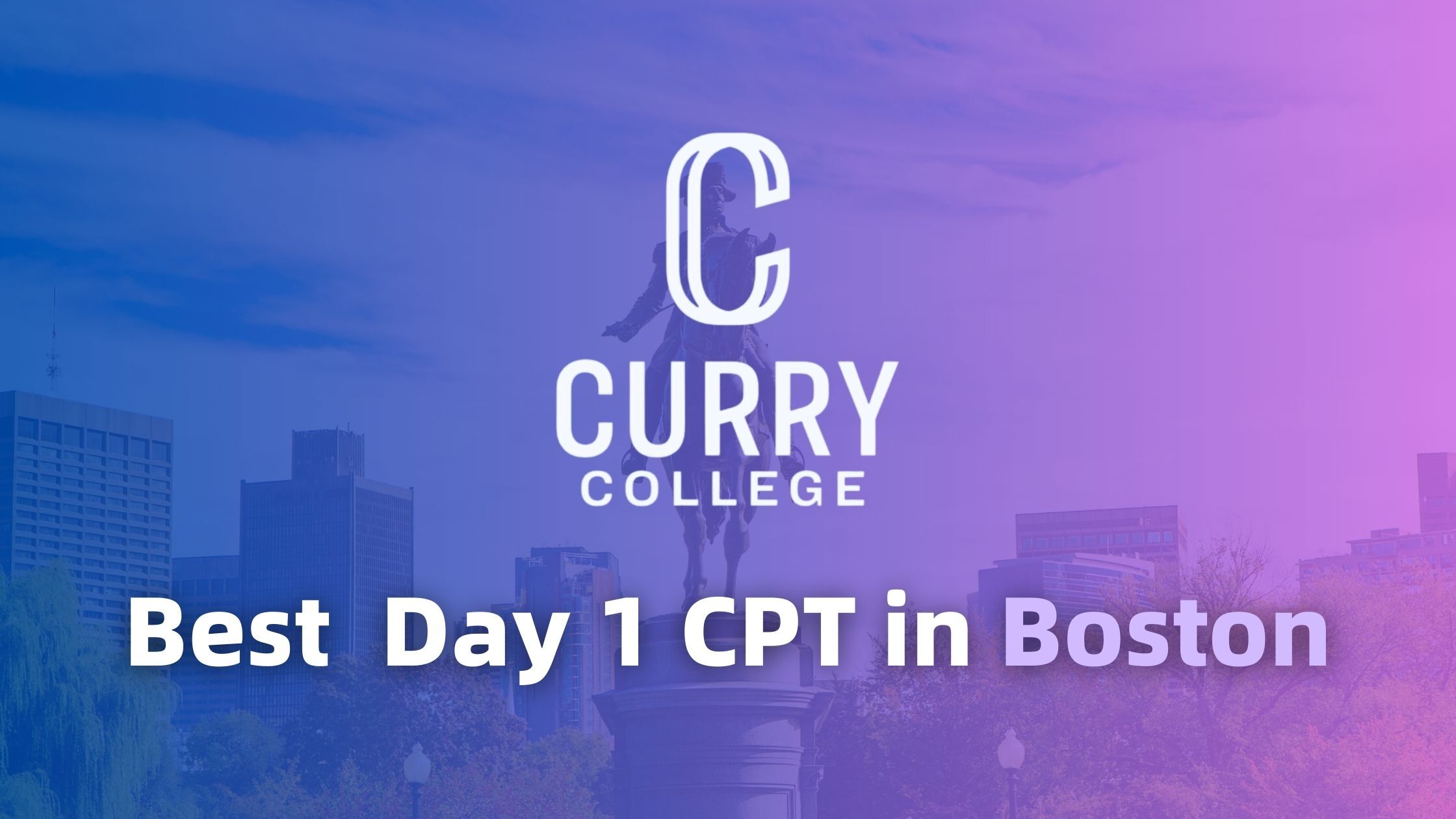
Why Curry College is a Top Choice of Day 1 CPT in Boston
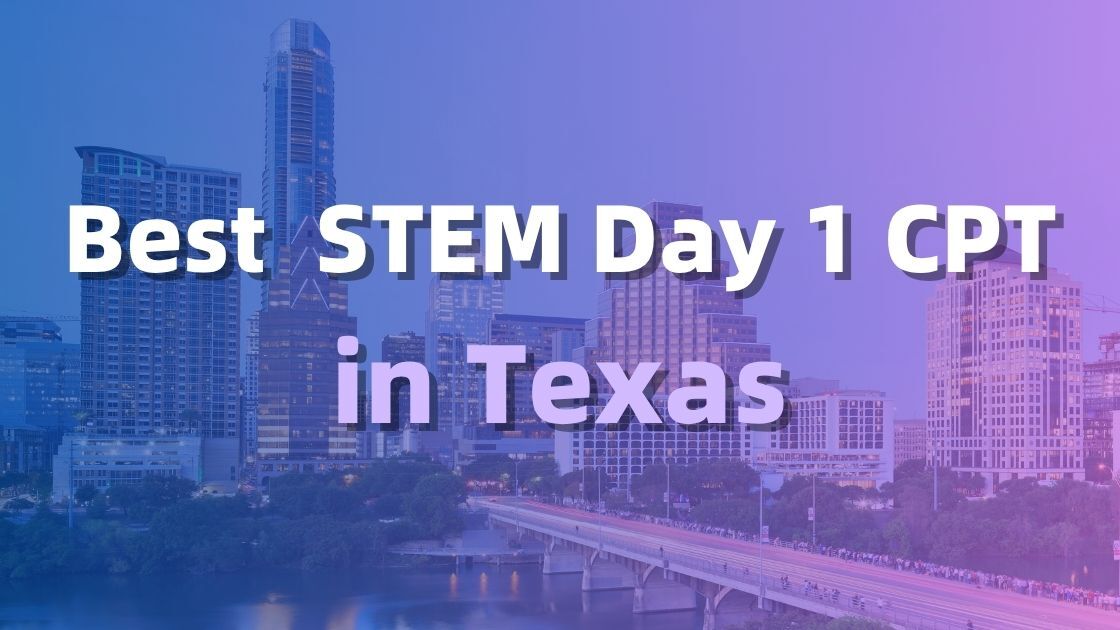
Concordia University Texas Launches New MCS Program - A Top STEM Day 1 CPT Option





.png?width=204&height=68&name=Verified%20(2).png)


.png?width=250&height=83&name=Logo%20-%20Rectangle%20(2).png)
.png?width=250&height=83&name=Logo%20-%20Rectangle%20(1).png)
